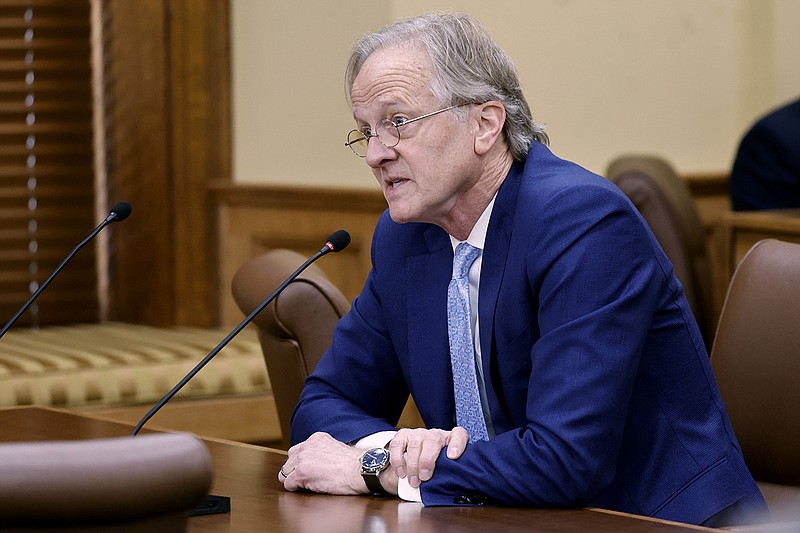The Central Arkansas Library System's executive director has pledged that the library system will defend employees who might be charged under a new state law that exposes library personnel to criminal charges for "knowingly" distributing material found to be obscene.
Senate Bill 81, which Gov. Sarah Huckabee Sanders signed on Thursday, removes existing language from state law that shields library personnel as well as school employees from prosecution for disseminating obscene material.
A person who loans out from a public library material found to be obscene could be charged with a Class D felony under the law. The legislation also creates a new Class A misdemeanor offense for knowingly furnishing a "harmful item" to a minor.
Additionally, it establishes parameters for citizens to challenge the appropriateness of material available to the public that is held in school or public libraries. Successful challenges could result in material being relocated to an area not accessible to minors.
Decisions not to relocate the challenged material could be appealed to a school district's board, in the case of a school library, or the governing body of a city or county, in the case of municipal or county libraries.
Central Arkansas Library System Executive Director Nate Coulter's statements came before Sanders' office announced on Friday that the governor had signed into law SB81 along with many other pieces of legislation the day before.
The legislation affecting schools and libraries will go into effect 90 days after the end of the legislative session.
"Between now and then, CALS and others who believe this bill is censorship will assess various litigation strategies for getting judicial review of the new law," Coulter said in a written report prepared for a library system board meeting Thursday.
"Although it strikes me as extremely unlikely to happen in Pulaski or Perry Counties, I have assured our staff that it will be CALS' policy to defend any of our employees who might be subjected to charges arising out of this misguided law," he added.
Elaborating on SB81 at the library system's board meeting Thursday, Coulter said he was operating under the assumption that the legislation will go into effect and the library system will have to "operate under its burdens, and we'll do what we have to do to comply with it."
SB81 stipulates that each municipal and county library "shall have a written policy to establish guidelines for the selection, relocation, and retention of physical materials that are available to the public," and goes on to set requirements for the process of addressing challenged material.
Currently, the Central Arkansas Library System's policy on reconsideration of library materials says any resident of the library system's service area can lodge an objection to an item in the collection, or a web site accessible through a library computer, by filling out a form.
According to the policy, the executive director then appoints a committee to evaluate the challenged item, and its members make a recommendation to the executive director with regard to removal.
Appeals of the executive director's decision go to the library system's board, which appoints its own committee to review the matter.
Coulter on Thursday told library system board members that the organization's request for reconsideration policy and collection development policy will have to be reviewed because of the legislation.
At the moment, public libraries in Arkansas are not subject to language in state law requiring them to have a material-challenge or collection development policy, according to Jennifer Chilcoat, the director of the Arkansas State Library.
Nevertheless, the existence of these policies is very common among libraries, Chilcoat suggested by phone Friday.
Existing language in state law says school districts must have a written policy for addressing challenged material. SB81 tweaks that language and sets new requirements for the challenge process.
